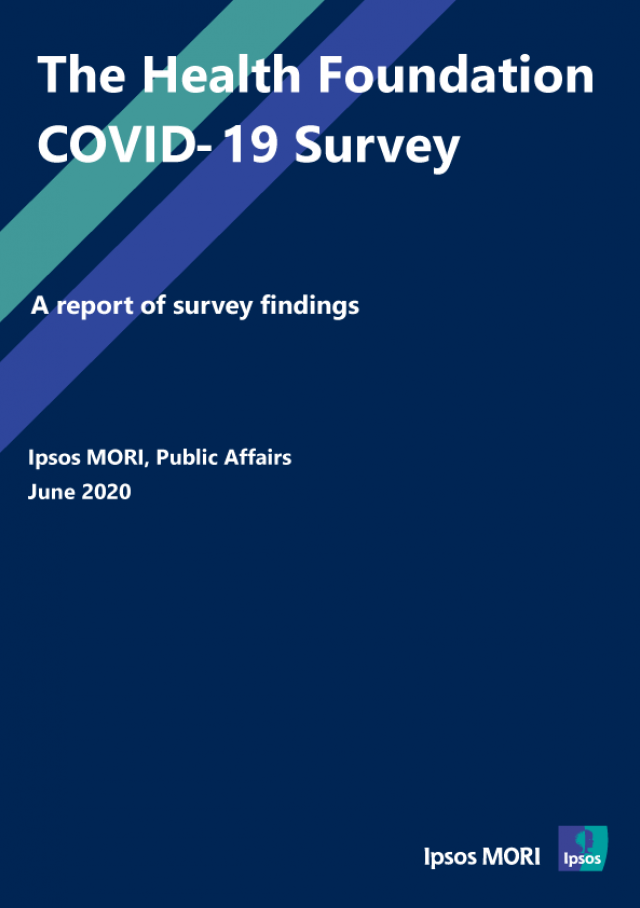Public perceptions of health and social care in light of COVID-19 (May 2020) Results from an Ipsos MORI survey commissioned by the Health Foundation
June 2020

Key findings
- This report presents the findings of a survey commissioned by the Health Foundation and conducted by Ipsos MORI between 1 and 10 May 2020.
- The results highlight how public perceptions have changed since the COVID-19 pandemic, with nearly 9 in 10 people (86%) now believing national government has a ‘great deal’ or ‘fair amount’ of responsibility for ensuring people generally stay healthy, significantly up from 61% in 2018.
- The survey shows that over three-quarters (77%) of British people are concerned about the impact of social distancing on the health and wellbeing of the nation, a figure that rises to 83% among over 65s.
- The results also show that the financial impacts of COVID-19 risk affecting people’s health and wellbeing in the longer term with two fifths (41%) of people having experienced a negative or significantly negative impact on their income.
The Health Foundation commissioned Ipsos MORI to carry out a survey of the general public in Great Britain to gather their views on a range of health and care issues in light of COVID-19.
The survey findings show that the COVID-19 pandemic has led to increased public recognition of the role of the state in supporting good health. Nearly 9 in 10 people (86%) now believe national government has a ‘great deal’ or ‘fair amount’ of responsibility for ensuring people generally stay healthy, significantly up from 61% in 2018.
Over three-quarters (77%) of British people are concerned about the impact of social distancing on the health and wellbeing of the nation, a figure that rises to 83% among over 65s.
The survey sheds light on a range of challenges people faced during the height of lockdown, such as finding it harder to communicate with friends and family (47%), struggling to get basic food items (54%) and essential medication (24%) or to access green space (33%). The research, undertaken in May, also indicates that 46% of the population feel the crisis is affecting their mental health in one way or another.
Two fifths (41%) of people have experienced a negative or significantly negative impact on their income. Significant numbers have had to dip into finance beyond their normal income, with 17% accessing savings and 12% using their overdraft as a result of the pandemic. Young people have been particularly affected, with 23% of 18-24-year olds and 20% of 25-34-year olds already having borrowed, or considering borrowing money from family and friends, compared to 4% of those aged 65+.
Notes
A nationally representative sample of 1,983 people, aged 18 and over in Great Britain, were interviewed via telephone on the Ipsos MORI CATI Omnibus survey between 1 and 10 May 2020. Quotas were set and data weighted to ensure a nationally representative sample of people aged 18 and over. Quotas were set on age, gender, government office region and working status. This data has been weighted to the known offline population proportions for age within gender, government office region and working status, social grade and education level.
Cite this publication
Further reading
Work with us
We look for talented and passionate individuals as everyone at the Health Foundation has an important role to play.
View current vacanciesThe Q community
Q is an initiative connecting people with improvement expertise across the UK.
Find out more


